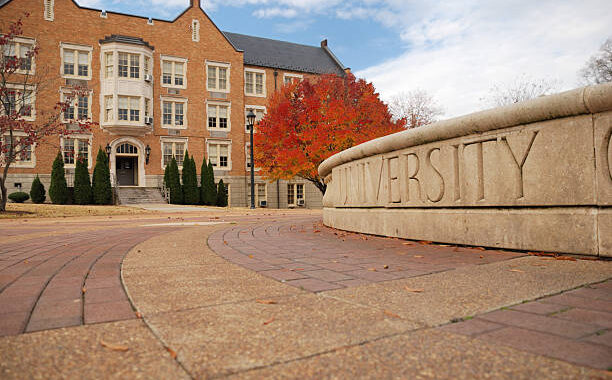About Us
Our mission at FTZ is to provide students with introduction level requirements and awareness to professional careers outside of a traditional educational environment.
Contact usContact Us Today
- 145 fleet st #233 National Harbor, MD 20745
- 240-935-1802
- info@functionaltrainingzone.net
- Monday-Friday: 9:30am-4pm
- Home
- Our Blog
5 Careers That Do Not Require College Degrees
By: Chris the Graduate So, you’re thinking about your career options and wondering if a college degree is really necessary. The truth is, there are plenty of fulfilling and well-paying jobs out there that don’t require a four-year degree. Whether you’re looking to jump into the workforce right away or considering a career change, here are five solid options that could lead to a rewarding career without the college hassle. 1. Trade Skills (Electrician, Plumber, Carpenter) What It Is: Skilled trades are all about hands-on work. Think electricians, plumbers, and carpenters—these folks keep our homes and businesses running smoothly. How to Get Started: Many of these careers require apprenticeships where you learn the ropes from someone with experience. Trade schools also offer programs that can get you certified and ready to work. Why It Rocks: 2. Commercial Driver (CDL) What It Is: With the rise of online shopping, commercial drivers especially truck drivers are in high demand. You’ll be transporting goods across the country, which can be pretty adventurous! How to Get Started: To drive commercially, you’ll need a Commercial Driver’s License (CDL). Training programs will prepare you for both the written and practical exams. Why It Rocks: 3. Real Estate Agent What It Is: Real estate agents help people buy, sell, or rent properties. If you’re a people person and enjoy networking, this could be a perfect fit. How to Get Started: No degree required! You’ll need to complete a state-approved training program and pass a licensing exam. Why It Rocks: 4. Sales Representative What It Is: Sales reps are the driving force behind many businesses, selling products or services to customers and clients. How to Get Started: While some roles may require industry knowledge, many sales jobs are open to those without a degree. You’ll usually get training on the job. Why It Rocks: 5. Healthcare Support Roles (Medical Assistant, Home Health Aide) What It Is: The healthcare industry needs support staff to help keep things running smoothly. Think medical assistants and home health aides critical roles that keep patients cared for. How to Get Started: These positions typically require a high school diploma and a certification program, with some on-the-job training. Why It Rocks: Not everyone needs a college degree to find a satisfying and lucrative career. There are plenty of paths to success that focus on skills, experience, and hard work instead. Whether you’re drawn to the trades, healthcare, sales, or real estate, these careers offer great opportunities to build a fulfilling life without the burden of student debt. So, take a look, do some research, and see which path resonates with you!
- Chris The Grad
- 0 Comments
- October 19, 2024
What is Online College?
By: Chris the Graduate As the landscape of education continues to evolve, online college has emerged as a viable alternative to traditional brick-and-mortar institutions. With advancements in technology, students can pursue higher education from the comfort of their homes, making it an appealing option for many. In this blog, we’ll explore what online college entails, the pros and cons of this educational format, and some essential factors to consider for students contemplating this route. Online college refers to a learning environment where students can complete their degree programs through the Internet. Courses are typically delivered through a combination of recorded lectures, live video sessions, and digital resources, allowing students to engage with course materials at their own pace. Various institutions offer online degree programs, including community colleges, universities, and specialized online schools, catering to a wide range of academic disciplines. Pros of Online College Cons of Online College Important Factors to Consider Online college presents a valuable alternative for students considering their options for higher education. With its flexibility, accessibility, and diverse course offerings, it can cater to a wide range of learning needs and lifestyles. However, it’s crucial to weigh the pros and cons, considering personal preferences and career goals. By doing thorough research and making informed decisions, students can find an educational path that best suits their needs and aspirations in today’s evolving academic landscape. Whether you’re looking to start a new career, advance in your current field, or pursue a passion, online college might just be the key to unlocking your potential.
- Chris The Grad
- 0 Comments
- October 12, 2024
Cómo ser exitoso en tus clases
Days With Daniela ¡Hola! Bienvenidos a mi blog, hoy hablaremos de como tener tiempo de hacer tareas y estudiar y mejorar tus grados pero también teniendo tiempo para socializar y si tienes un trabajo también tengas tiempo. Es verdad que las tareas y proyectos pueden ser más complicados y tú tienes más responsabilidades. En la universidad es cuando aprendes más los materias de tus clases por tu cuenta más que depender de un profesor, es más fácil que podrías atrasarte con tus tareas y proyectos, pero con los tips correctos podrás mejorar y aprender todo a tiempo para mantener tus grados altos y ser exitoso en tus clases. El temario: El temario es algo que se presenta en los primeros días de clases e incluye todas las tareas que se realizarán y los exámenes y cuánto valen para tu grado final. Te puedes sentir abrumado pero es importante empezar a organizarte para hacer todo a tiempo. Las clases: Las clases pueden ser variadas y puedes tener desde lecturas, laboratorios, y seminarios, y todos tienen requerimientos diferentes y días de entrega, hay que estar al tanto. Tips: Estos tips te ayudarán a mejorar en tus clases y tener todo organizado. Asiste a tus clases diario: Asistir a tus clases diarios te asegurará que no pierdas ninguna información importante que necesitas aprender, hay casos como el mío que tienes que ir siempre porque hay quizzes sorpresas o la asistencia es parte de tu grado total. Sí recomiendo que si no eres una persona de la mañana no tomes clases de las 8:00 AM porque no es lo mismo que en high school. Aprende a tomar apuntes: Hay muchos métodos de tomar notas como son Método Cornell, método “outline”, o páginas divididas que te ayudarán a procesar mejor la información para cuando estudies y siempre procura repasar así refrescaras tu memoria. Si un método de estudio no te funciona siempre tendrás la oportunidad de cambiar de método hasta encontrar algo que te favorezca y entiendas mejor. Crea un horario para estudiar: Estudia al menos de 30-40 mins y procura intercalar descansos. Cuida tu salud física y mental: Esta parte es muy importante, para ser exitosos en la escuela tenemos que procurar nuestra salud, así podemos aprender todo y memorizar. Es crucial tener una buena alimentación, tener tiempo para ejercitarse, tener un buen horario para dormir y también cuidar la salud mental, lidiando con el estrés o depresión. Busca ayuda si es necesario. Aprovecha todos los recursos: Las universidades podrán proporcionar cosas como grupos de estudio (o puedes crear uno), tutorías para cualquier materia, recursos online como en mi escuela que tenemos el “Math Learning Center” que es una pagina online donde vienen tutorías para matemáticas que te apoyaran para pasar tus clases. También cada clase tendrá sus horarios de oficina donde podras hablar con tu profesor para aclarar dudas o tener ayuda extra. Planea y prioriza: Realiza un seguimiento de los exámenes, las sesiones de estudio y las tareas, y haz un planner para saber qué cosas se entregan primero y priorizarlos. En conclusión, la universidad puede ser estresante pero si tienes una rutina y tienes tiempo para relajarte y hacer otras actividades que no tengan que ver con la escuela tendrás un buen tiempo en la universidad, ¡buena suerte!
- Days with Daniela
- 0 Comments
- September 25, 2024
How to Be Successful in Your Classes
Days With Daniela Hello! Welcome to my blog, today we will talk about how to have time to do homework and study and improve your grades and using all the resources de school could provide for you. It’s true that tasks and projects can be more complicated and you have more responsibilities. In college is when you learn more of the subjects in your classes on your own which is self-learning, rather than depending on a professor, it is easier you could fall behind with your homework and projects, but with the right tips you will be able to improve and learn everything in time to keep your grades high and be successful in your classes. The syllabus: The syllabus is something that is presented on the first days of classes and includes all the assignments that will be done, how many exams the exams will be taken and how much they are worth for your final grade. You may feel overwhelmed but it is important to start organizing yourself to get everything done on time. The classes: Classes can be varied and you can have lectures, labs, and seminars, and they all have different requirements and deadlines, you have to be aware. Tips: These tips will help you improve in your classes and keep everything organized. Attend your daily classes: Attending your daily classes will ensure that you don’t miss any important information you need to learn. There are cases like mine that you have to always go to classes because there are surprise quizzes or attendance is part of your total grade. I do recommend that if you are not a morning person you do not take classes at 8:00 AM because it is not the same as in high school. Learn to take notes: There are many note-taking methods such as the Cornell Method, the “outline” method, or split pages that will help you process information better for when you study and always try to review so you will refresh your memory. If a study method doesn’t work for you, you’ll always have the opportunity to change your method until you find something that works for you and you understand better. Create a schedule to study: Study for at least 30-40 minutes daily and try to have break sessions. Take care of your physical and mental health: This part is very important. To be successful in school we have to take care of our health, so we can learn everything and memorize. It is crucial to have a good diet, have time to exercise, have a good sleep schedule and also take care of mental health, dealing with stress or depression. Seek help if needed. Take advantage of all the resources: Universities will be able to provide things like study groups (or you can create one), tutoring for any subject, online resources like in my school we have the “Math Learning Center” which is an online page where math tutorials come that will support you to pass your classes, there is also writing centers of Teacher Assistants. Each class will also have its office hours where you can talk to your teacher to clarify doubts or have extra help. Plan and prioritize: Keep track of tests, study sessions, and assignments, and make a planner to know what things are due first and prioritize them. In conclusion, college can be stressful but if you have a routine and have time to relax and do other activities that have nothing to do with school you will have a good time in college, good luck!
- Days with Daniela
- 0 Comments
- September 24, 2024
Exploring Study Abroad Programs: A Gateway to Global Learning
By: Chris the Graduate Studying abroad is one of the most enriching opportunities college students can experience. Whether it’s immersing yourself in a new culture, learning a language, or gaining a global perspective on your field of study, study abroad programs offer a unique chance to expand your horizons. But with so many options available, how do you choose the right program, and what can you expect? Let’s explore the benefits, types of programs, and tips for making the most of your study abroad experience. The Benefits of Studying Abroad 1. Cultural Immersion One of the most significant advantages of studying abroad is the opportunity to immerse yourself in a different culture. Living in a foreign country allows you to experience daily life from a new perspective, whether it’s trying local cuisine, participating in traditional festivals, or simply navigating the public transportation system. For example, if you study in Japan, you might practice the art of tea ceremonies or learn about the intricacies of Japanese etiquette. These experiences can deepen your cultural understanding and make you more adaptable and open-minded. 2. Academic Growth Study abroad programs often provide access to courses and educational opportunities that may not be available at your home institution. Imagine studying Renaissance art in Florence, marine biology on Australia’s Great Barrier Reef, or international business in Shanghai. These experiences can enhance your academic growth by exposing you to new methodologies, perspectives, and resources. Additionally, many programs offer hands-on learning opportunities, such as internships or research projects, that allow you to apply your knowledge in real-world settings. 3. Language Skills If you’re studying a foreign language, there’s no better way to improve your fluency than by living in a country where that language is spoken. For instance, spending a semester in Spain can help you refine your Spanish skills through daily interactions while attending classes taught in the language can deepen your comprehension. Even if you’re not studying a language, simply being in an environment where a different language is spoken can enhance your communication skills and boost your confidence. 4. Personal Development Studying abroad challenges you to step outside your comfort zone, fostering personal growth and independence. You’ll learn to navigate unfamiliar environments, adapt to new customs, and solve problems on your own. This experience can build resilience, self-reliance, and a greater sense of self. For many students, study abroad is a transformative experience that shapes their future goals and perspectives. 5. Career Advantages In today’s globalized world, employers value candidates with international experience. Studying abroad can make your resume stand out, demonstrating your adaptability, cultural competence, and willingness to take on challenges. Whether you’re pursuing a career in international relations, business, education, or any other field, the skills and experiences you gain abroad can give you a competitive edge in the job market. Types of Study Abroad Programs 1. Semester or Year-Long Programs These programs allow you to spend a full semester or academic year at a partner university abroad. They’re ideal if you want to fully immerse yourself in another culture and academic environment. For example, many universities have exchange programs with institutions around the world, allowing you to study abroad while paying your regular tuition fees. 2. Short-Term Programs If a semester or year abroad doesn’t fit into your schedule, short-term programs—such as summer or winter break courses—might be a better option. These programs usually last a few weeks and offer intensive study in a specific subject. For example, you could spend a month in Costa Rica studying environmental science or two weeks in France learning about European history. 3. Faculty-Led Programs In faculty-led programs, a group of students travels abroad with a professor from their home university. These programs are often focused on a specific academic topic and include a mix of classroom learning and field experiences. For instance, a biology professor might lead a study abroad trip to the Amazon Rainforest to study biodiversity, combining lectures with hands-on research in the field. 4. Internship and Service-Learning Programs These programs combine academic study with practical experience through internships or service projects. For example, you might intern with a non-profit organization in South Africa or participate in a community development project in India. These programs provide valuable work experience while allowing you to contribute to the local community. Tips for Making the Most of Your Study Abroad Experience 1. Research Your Options Start by exploring the study abroad programs offered by your college or university. Consider factors such as the location, length of the program, cost, language requirements, and academic focus. Talk to study abroad advisors, professors, and students who have previously studied abroad to get their insights and recommendations. 2. Plan Ahead Once you’ve chosen a program, it’s essential to plan ahead. Make sure you understand the application process, including deadlines, required documents, and any prerequisites. You’ll also need to consider how study abroad fits into your academic plan—will the credits transfer back to your home institution? Will you need to take specific courses before or after your time abroad? 3. Embrace the Experience While abroad, immerse yourself in the local culture, and take advantage of every opportunity to learn and explore. Attend local events, try new foods, and engage with people in the community. Don’t be afraid to step out of your comfort zone—this is your chance to grow both personally and academically. 4. Stay Connected Keep in touch with your home university, friends, and family while you’re abroad, but also make an effort to build new relationships in your host country. Networking with professors, students, and professionals abroad can open doors to future opportunities. A World of Possibilities Study abroad programs offer an unparalleled opportunity to expand your academic, cultural, and personal horizons. Whether you choose a semester-long program in Europe, a short-term course in Asia, or an internship in South America, studying abroad can be a life-changing experience. It’s an investment in your future, providing you with the skills, knowledge, and perspectives to navigate an increasingly interconnected world.
- Chris The Grad
- 0 Comments
- September 21, 2024
Living on Campus vs. Off Campus: Which is Right for You?
By: Chris the Graduate One of the biggest decisions you’ll make as a college student is whether to live on or off campus. Each option has its perks and challenges, and the choice you make can significantly impact your college experience. Whether you’re a freshman stepping into college life or an upperclassman considering a change, weighing the pros and cons is essential. Let’s dive into the key differences between living on campus and off campus, so you can decide which one suits your lifestyle and goals. Living on Campus: The Immersive Experience 1. Convenience and Proximity Living on campus offers the ultimate convenience. You’re just minutes away from your classes, the library, dining halls, and other campus resources. Imagine rolling out of bed 10 minutes before your 9 a.m. class and still making it on time. This proximity can save you a lot of time and stress, especially during exam season when every minute counts. 2. Social Opportunities When you live on campus, you’re right in the heart of college life. Dorms are buzzing with activity, and it’s easy to meet new people and get involved in campus events. For example, many students find their closest friends in their dorm or residence hall. There’s also the added benefit of being surrounded by other students who are going through the same experiences, which can create a strong sense of community and support. 3. All-Inclusive Amenities Most on-campus housing comes with utilities, internet, and meal plans included, making budgeting simpler. There’s no need to worry about setting up and paying for Wi-Fi, water, or electricity separately. Plus, meal plans mean you don’t have to cook or grocery shop, giving you more time to focus on your studies and social life. 4. Safety and Security College campuses typically have security measures in place, such as 24/7 campus police, secure dorm access, and emergency call stations. This can provide peace of mind, especially for students and their families. Knowing that help is always nearby can make living on campus feel safer than off-campus options. Living Off-Campus: Independence and Flexibility 1. More Freedom and Independence Living off campus usually means more freedom. You can choose your own living space, cook your own meals, and live by your own rules. This independence can be empowering and a great way to prepare for life after college. For instance, living off campus might allow you to have pets, host friends without restrictions, or decorate your space to your liking. 2. Potential Cost Savings Depending on your location and the cost of living in your college town, living off-campus can be more affordable than on-campus housing. You have the option to share an apartment with roommates, which can significantly reduce your rent and utility costs. Additionally, you’re not tied to a meal plan, so you can save money by cooking your own meals. 3. Real-World Experience Living off campus gives you a taste of the real world. You’ll learn to manage household responsibilities like paying rent, setting up utilities, and dealing with landlords. This experience can be invaluable as you transition from college to post-graduation life. It’s an opportunity to develop life skills that will serve you well beyond your college years. 4. Separation from Campus Life While living off campus offers freedom, it can also make you feel disconnected from the campus community. Commuting to class, missing out on impromptu social gatherings, and being removed from the hustle and bustle of campus life are potential downsides. However, some students find this separation beneficial for maintaining a healthy work-life balance, especially if they need a quiet space to study and relax. Making the Choice: What’s Right for You? 1. Consider Your Priorities Your choice should align with your priorities and lifestyle. If you value convenience, social opportunities, and being fully immersed in college life, living on campus might be the better choice. However, if you’re seeking independence, more control over your living situation, and potential cost savings, off-campus living could be the way to go. 2. Evaluate Your Budget Finances are a significant factor in this decision. Carefully consider the costs associated with both options, including rent, utilities, food, and transportation. Don’t forget to account for hidden costs like parking fees, commuting expenses, and the potential need for a car if you live off campus. 3. Think About Your College Experience Reflect on the kind of college experience you want. Do you want to be in the middle of all the action, or do you prefer a quieter, more independent lifestyle? Your living situation can shape your college years in more ways than you might expect. Ultimately, the decision to live on or off campus is personal and depends on your preferences, budget, and goals. Both options have their unique advantages and challenges, and what works for one person might not work for another. Whatever you choose, remember that your living situation is just one part of your college experience. Make the most of it by getting involved, making connections, and embracing the opportunities that come your way. College is a time of growth, learning, and exploration no matter where you live.
- Chris The Grad
- 0 Comments
- September 14, 2024
The Unspoken Realities of College: What No One Tells You
By: Chris the Graduate When you think about college, you might imagine late-night study sessions, exciting social events, and the freedom of living on your own. While all of these are part of the experience, there’s a lot more to college life that often goes unmentioned. Beyond the lectures and the parties, college is a journey of personal growth and self-discovery. Here are five things no one tells you about college and why they’re important The Learning Curve Isn’t Just Academic The academic challenges of college are well-documented. However, the steepest learning curve might not come from the classroom but from navigating your new life. Imagine this: you’re juggling a demanding course load, a part-time job, and new friendships. Suddenly, you’re responsible for your schedule, your meals, and your laundry. This independence is both exhilarating and overwhelming. Learning how to manage your time, set priorities, and take care of yourself are lessons that go beyond any textbook and they’re crucial to your success. Networking Starts on Day One It’s easy to assume that networking is something to worry about in your junior or senior year, but that’s a misconception. Take the example of Sarah, a freshman who joined a student organization related to her major. By the end of her first year, she had connected with upperclassmen who gave her invaluable advice, introduced her to professors, and even helped her land a summer internship. Networking isn’t just about finding a job; it’s about building relationships that will support and enrich your college experience. Grades Aren’t Everything In high school, getting straight A’s might have been your top priority, but college is a different ballgame. Take John, who chose to take a notoriously difficult course because he was passionate about the subject, even though it meant risking a lower grade. He didn’t get an A, but he gained a deeper understanding of the material and discovered a potential career path he hadn’t considered before. In college, it’s important to remember that learning and personal growth often matter more than a perfect GPA. You Will Fail (And That’s Okay) Failure is a taboo topic, but it’s an inevitable part of the college experience. Consider Emily, who failed her first major exam and was devastated. She could have let it derail her, but instead, she sought help from her professor, adjusted her study habits, and ultimately passed the course. Failure doesn’t define you—it’s how you respond to it that matters. College is a safe space to learn from your mistakes and develop resilience. Your Mental Health Is a Priority With all the pressures of college, it’s easy to put your mental health on the back burner. But this can lead to burnout, anxiety, and even depression. Think of James, who was so focused on maintaining his grades and social life that he ignored signs of stress until he had a full-blown panic attack. He realized that taking care of his mental health was as important as any assignment or exam. He started attending counseling sessions, practicing mindfulness, and setting boundaries to protect his well-being. College is demanding, but you don’t have to go through it alone. Prioritizing your mental health is essential to thriving during these years. Embracing the College Journey College is a time of immense growth, both academically and personally. It’s a journey filled with challenges, but also with opportunities to learn, connect, and evolve. By understanding the unspoken realities of college, you can navigate these years with greater confidence and resilience. Remember, college isn’t just about getting a degree; it’s about discovering who you are, what you’re passionate about, and how you want to contribute to the world. Embrace the process, learn from every experience, and know that it’s okay to stumble along the way. What matters most is that you keep moving forward, growing, and becoming the best version of yourself.
- Chris The Grad
- 0 Comments
- September 7, 2024
Gran Universidad
Days with Daniela ¡Hola! Bienvenidos a mi blog, hoy vamos a hablar de cosas positivas y negativas de estudiar y vivir en una Universidad grande, en mi caso soy estudiante de Texas A&M University. Pros: Contras: En conclusión, estas son algunos ejemplos de pros y contras de estar en una Universidad grande, en parte a base mi experiencia, yo recomendaría visitar las universidades antes de hacer esa gran decisión como es elegir una Universidad. Recuerda que esta decisión depender de tus presencias y que es lo que buscas para tus metas de vida.
- Days with Daniela
- 0 Comments
- August 28, 2024
Big College
Days with Daniela Hello! Welcome to my blog, today we are going to talk about the positive and negative things of studying and living in a big University, in my case I am a student at Texas A&M University. Pros: • There are plenty of opportunities for socializing, and extracurricular activities. There are several options to do some sports, there are clubs of many types, either related to your career or clubs of things you have in common with other people. • At large universities, you may have more job opportunities, research resources working with your professors, and even more opportunities for people who are more interested in sports. You will also have more opportunities for scholarships and financial aid if you meet certain requirements. Cons: • Face-to-face classes have up to three hundred students in a classroom. It will be harder to socialize with your classmates and sometimes not have one-on-one interactions with your teachers and they will not always be able to help you because they have so many more students to teach. But like any University, they also offer tutorials with teaching assistants and pages with tutorials to learn the best material. • The university is big; therefore, you must learn your ways and times to be able to arrive on time. If possible, you should have a means of transportation such as skateboards and bicycles. In my case, I was on foot like most people. • They have many departments that serve certain services, therefore, you have to learn the ones you will need the most and know their location in case you need help with something, in my case I always had a list with addresses for services such as Financial Aid and Disability, but since it is a large school and there are many students it is likely that the help you receive or the services are not the best. Students may not receive as much personalized attention and you may have to deal with long wait times for help, as was in my case. In conclusion, these are examples of the pros and cons of being in a large University, partly based on my experience, I would recommend visiting universities before making that big decision such as choosing a university. Remember that this decision will depend on your presence and that it is what you are looking for in your life goals.
- Days with Daniela
- 0 Comments
- August 26, 2024
Keeping It Professional: How to Enhance Your Professionalism While in College
By: Chris the Graduate College is a transformative period where you’re not only gaining academic knowledge but also preparing for your future career. Developing professionalism during these years is crucial, as it sets the tone for your career and helps you stand out to potential employers. Here’s how you can improve your professionalism while navigating college life, with practical tips and strategies to enhance your career readiness. 1. Craft a Standout Resume and Cover Letter Why It’s Important A polished resume and cover letter are your first impressions in the professional world. They showcase your skills, experiences, and achievements in a concise manner. Crafting these documents early and keeping them updated is essential for making a strong impact on potential employers. Tips: 2. Master the Art of Networking Why It’s Important Networking is a powerful tool for building professional relationships and finding career opportunities. College provides numerous opportunities to connect with industry professionals, alumni, and peers. Tips: 3. Develop Strong Communication Skills Why It’s Important Effective communication is a cornerstone of professionalism. Being able to articulate your thoughts clearly, listen actively, and respond appropriately is crucial in both academic and professional settings. Tips: 4. Build a Professional Online Presence Why It’s Important In today’s digital age, your online presence can significantly impact your professional image. A well-managed online presence helps you project a professional image and can be a valuable asset in your career search. Tips: Keywords: professional online presence, social media professionalism, personal website, digital footprint 5. Gain Practical Experience Through Internships Why It’s Important Internships provide hands-on experience in your field of study, helping you apply classroom knowledge in a real-world context. They also demonstrate your commitment to your career and enhance your resume. Tips: 6. Adopt a Professional Attitude Why It’s Important Displaying a professional attitude, including reliability, responsibility, and a positive work ethic, can significantly impact how you are perceived in academic and professional settings. Tips: 7. Seek Feedback and Act on It Why It’s Important Constructive feedback helps you understand your strengths and areas for improvement. Actively seeking and acting on feedback demonstrates your commitment to personal and professional growth. Tips: Keywords: constructive feedback, personal growth, professional development, seeking feedback 8. Learn Professional Etiquette Why It’s Important Understanding and practicing professional etiquette is crucial for making a positive impression in both academic and workplace environments. Tips: 9. Stay Organized and Manage Your Time Effectively Why It’s Important Effective time management and organization are key to balancing academic responsibilities and professional development. Being organized helps you meet deadlines and manage multiple tasks efficiently. Tips: 10. Develop a Professional Skill Set Why It’s Important In addition to academic knowledge, possessing a range of professional skills can make you more competitive in the job market. Skills such as project management, data analysis, and proficiency in industry-specific tools are highly valued. Tips: Improving your professionalism while in college is essential for setting yourself up for future success. By focusing on creating a standout resume, mastering networking, developing communication skills, and adopting a professional attitude, you can enhance your career readiness and make a strong impression in your chosen field. Start implementing these strategies today to build a solid foundation for your professional journey.
- Chris The Grad
- 0 Comments
- August 17, 2024








